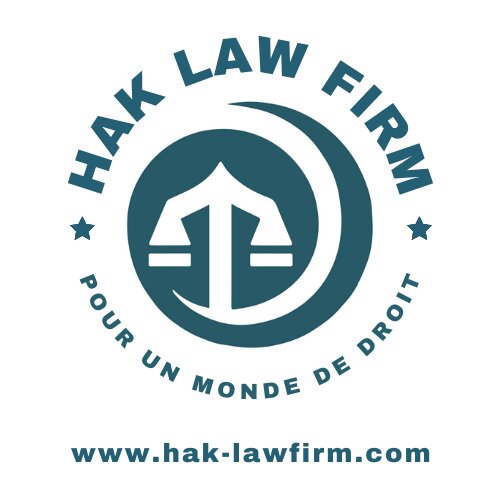Best Discrimination Lawyers in Kinshasa
Share your needs with us, get contacted by law firms.
Free. Takes 2 min.
List of the best lawyers in Kinshasa, DR Congo
About Discrimination Law in Kinshasa, DR Congo:
Discrimination in Kinshasa, DR Congo is a serious issue that can manifest in various forms such as race, gender, age, disability, religion, or sexual orientation. The country has laws in place to protect individuals from discrimination and ensure equal opportunities for all citizens.
Why You May Need a Lawyer:
You may need a lawyer if you have experienced discrimination in the workplace, housing, education, or any other area of your life. A lawyer can help you understand your rights, navigate the legal system, and seek justice for the harm caused by discrimination.
Local Laws Overview:
In Kinshasa, DR Congo, the Constitution prohibits discrimination based on race, ethnicity, sex, religion, or social status. The Labour Code also protects employees from discrimination in the workplace. It is important to be aware of these laws and how they apply to your specific situation.
Frequently Asked Questions:
1. What is considered discrimination in Kinshasa, DR Congo?
Discrimination is the unfair treatment of individuals based on their race, gender, age, disability, religion, or other protected characteristics.
2. Do I need evidence to file a discrimination claim?
It is helpful to have evidence such as witness statements, emails, or documentation to support your claim of discrimination.
3. How long do I have to file a discrimination claim in Kinshasa, DR Congo?
The time limit for filing a discrimination claim may vary depending on the specific circumstances of your case. It is advisable to consult with a lawyer to determine the appropriate timeline.
4. What remedies are available for discrimination in Kinshasa, DR Congo?
Remedies for discrimination may include compensation for damages, reinstatement to a job, or other forms of relief as determined by the court.
5. Can I be retaliated against for filing a discrimination claim?
Retaliation for filing a discrimination claim is illegal in Kinshasa, DR Congo. If you experience retaliation, you may have additional legal recourse.
6. How can a lawyer help me with my discrimination claim?
A lawyer can help you understand your rights, gather evidence, negotiate with the other party, and represent you in court if necessary.
7. What are my options if I cannot afford a lawyer?
You may be eligible for legal aid or pro bono services provided by legal organizations in Kinshasa, DR Congo. It is important to explore these options if you cannot afford a lawyer.
8. Can I file a discrimination claim anonymously?
It may be possible to file a discrimination claim anonymously in certain circumstances. Consult with a lawyer to discuss the best approach for your situation.
9. Are there alternative dispute resolution options for discrimination cases?
Mediation or arbitration may be options for resolving discrimination cases outside of court. A lawyer can help you explore these alternative dispute resolution methods.
10. How can I prevent discrimination in my community?
You can help prevent discrimination in your community by promoting awareness, advocating for equal rights, and supporting organizations that work to combat discrimination.
Additional Resources:
For additional resources and support related to discrimination in Kinshasa, DR Congo, you can contact the Ministry of Human Rights, local non-profit organizations, or legal aid services in your area.
Next Steps:
If you believe you have experienced discrimination and need legal assistance, it is important to consult with a lawyer who specializes in discrimination law. They can help you understand your rights, assess your case, and guide you through the legal process to seek justice and remedy for the discrimination you have faced.
Lawzana helps you find the best lawyers and law firms in Kinshasa through a curated and pre-screened list of qualified legal professionals. Our platform offers rankings and detailed profiles of attorneys and law firms, allowing you to compare based on practice areas, including Discrimination, experience, and client feedback.
Each profile includes a description of the firm's areas of practice, client reviews, team members and partners, year of establishment, spoken languages, office locations, contact information, social media presence, and any published articles or resources. Most firms on our platform speak English and are experienced in both local and international legal matters.
Get a quote from top-rated law firms in Kinshasa, DR Congo — quickly, securely, and without unnecessary hassle.
Disclaimer:
The information provided on this page is for general informational purposes only and does not constitute legal advice. While we strive to ensure the accuracy and relevance of the content, legal information may change over time, and interpretations of the law can vary. You should always consult with a qualified legal professional for advice specific to your situation.
We disclaim all liability for actions taken or not taken based on the content of this page. If you believe any information is incorrect or outdated, please contact us, and we will review and update it where appropriate.










